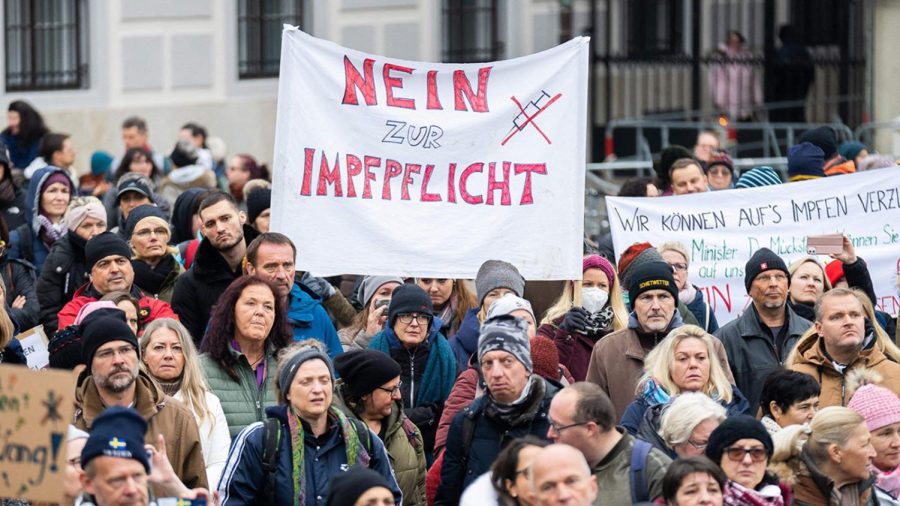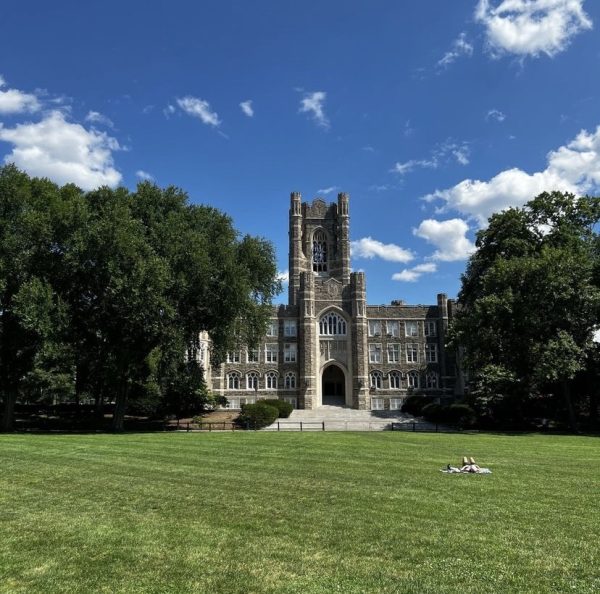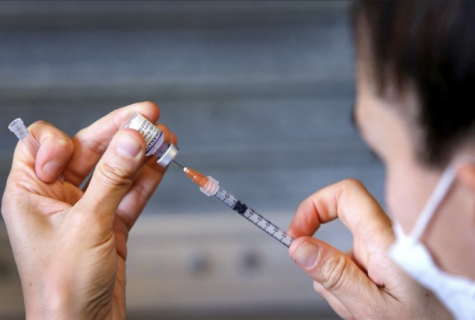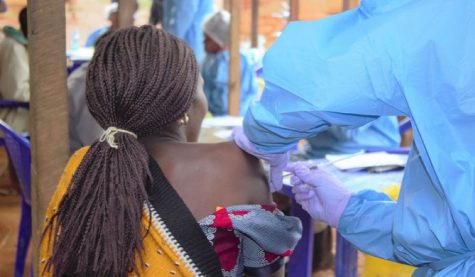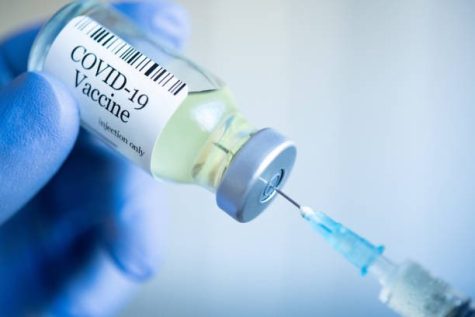Austrian Lockdown Deepens Vaccine Divide
The Austrian government ordered a mass lockdown for unvaccinated people on Nov. 15. This lockdown includes approximately 2 million of the Alpine country’s 8.9 million people. Children aged 11 and younger are exempt from the order. Police will be “spot checking” public spaces to determine vaccination status. Unvaccinated individuals found in public will be issued a hefty fine of €500 ($572), while a penalty of €1,450 ($1,643) will be issued for any refusal of these checks.
The Austrian government already banned unvaccinated citizens from restaurants, hairdressers and cinemas. More curtailing of rights and discriminatory restrictions seem to be on the way. The Freedom Party denounced these actions as a creation of a second-class citizen group. Hundreds protested outside the chancellery in Vienna, waving banners that read: “Our bodies, our freedom to decide.” Protesters argue that these lockdowns oppose their biological rights and assert that these restrictions are discriminatory.
Austrian authorities worry the rising infection rate will soon deteriorate staff hospital capabilities. Professor Eva Schernhammer of the Medical University of Vienna believes Austria will “have reached the limit” within two weeks. Austria has one of the lowest vaccination rates in Western Europe, with 65.6% of the population vaccinated as of Nov. 21. Its seven-day infection rate steeps at 1,064 infected per 100,000 people as of Nov. 21.
In comparison, its neighbor Germany sits at a rate of 402 infected per 100,000 people as of the same date, with a similar vaccination rate of 68.0%. Germany is looking to prepare for another series of restrictions and has already labeled Austria as “high-risk.” Anyone arriving from Austria must quarantine.
Vaccination rates are much lower still in some eastern European countries. Latvia, with 59.4% vaccinated, reimposed lockdowns last month and has banned members of Parliament from voting until the middle of 2022 if they refuse the vaccine or cannot provide proof of recovery from COVID-19. Their pay will also be docked.
Russia’s vaccination sits at a low 37.1%. Last month, a partial lockdown was put into place, providing workers with a nine-day paid holiday. Putin ordered the lockdown in an attempt to mitigate rising infection and mortality rates. Despite this attempt, the answer to the COVID-19 crisis does not appear to be lockdowns or mandatory vaccination.
To start, lockdowns are meant to curb interactions. Restricting people from social interaction even for good reason can have a devastating effect. Depression and anxiety continue to climb across the globe, and these lockdown efforts are certainly not helping. Human beings thrive on interaction, or what we call life. Unfortunately, it could just be the uncompromising nature of today’s politics.
The lockdowns could also be a power grab. It is difficult to deny the power struggle in front of us. The state is giving us two clear choices and then assuming responsibility for our bodies based on our resulting decisions. We are being placed in an infantile state where the elite class controls our agency. It sounds a lot like totalitarianism. After all, totalitarianism usually begins by disguising the government’s actions as betterment of the people. Remember “15 days to slow the spread”? Yet, here we are today.
The divide between the vaccinated and unvaccinated also deserves some analysis. Merriam-Webster altered its definition of “anti-vaxxer” to make clearer the distinction that anti-vaxxers are against vaccine mandates and regulations, not just personal vaccination. What about those who are vaccinated but still oppose the mandates and regulations? Some of us have little choice in the matter of personal vaccination. Our vaccination status is largely in the grips of the government, if not the companies or institutions that employ us.
The divide between anti-vaxxers and vaxxers creates angst between the two groups. Pro-vaxxers are thought of as the liberal elite and morally worthy, while anti-vaxxers are immoral, science-denying conservatives. Both hyperbolic stereotypes manifest a deep divide. If we wish to overcome the pandemic, then all of us need to be on board. That doesn’t mean mass vaccinations alone, as demonstrated by Israel’s recent minor spike of COVID-19 cases despite its rapid vaccination campaign in late 2020. The solution may not be here yet, but research will continue to provide insight. It just takes time.
We need to acknowledge our differences of opinion not as wrong or immoral, but as a matter of life. Partisan politics plague the COVID-19 effort, and this shouldn’t be the case for a pandemic. It is about time we view and confront the pandemic as a shared effort since we are all living and struggling through it together.
Brian Pfail, FCLC ’22, is a communications major from Ronkonkoma, N.Y.





































































































































































































